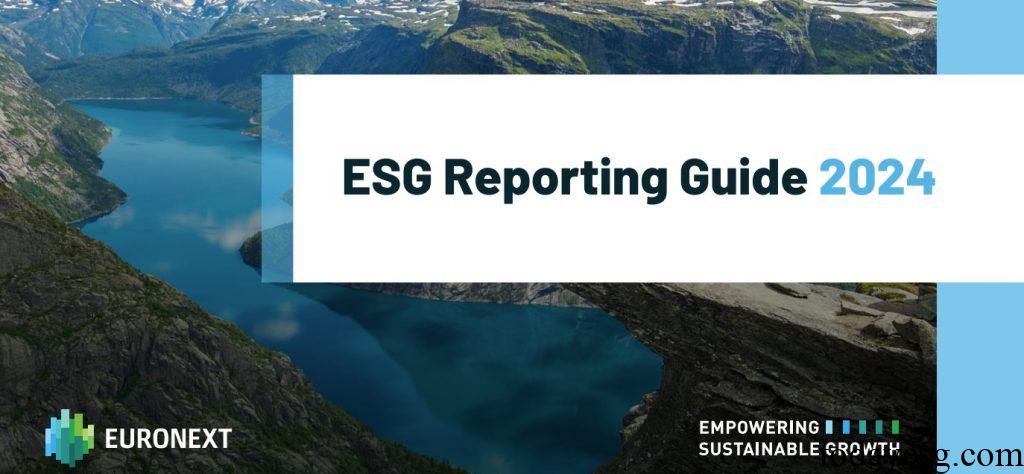How to Write ESG Reports?
Under the influence of investor demand, market regulations, and corporate responsibility, ESG reports have become an important channel for companies to communicate with stakeholders. This article provides a detailed interpretation of the ESG reporting guides released by Euronext, offering companies a method for writing ESG reports in accordance with EU regulatory policies.
According to data from Euronext, over 90% of listed companies have disclosed ESG indicators, with the number of disclosures for the 50 most commonly used ESG data points increasing by 40% since 2020. Enterprises in the EU need to understand the constantly evolving regulatory environment and meet the requirements of stakeholders such as investors and partners.
Related Post: Euronext Releases 2024 ESG Trends Report

Why do Companies Need to Write ESG Reports
Euronext believes that a series of factors require companies to write ESG reports, including:
- Investor demand: Investors’ attention to ESG is growing and they hope to obtain ESG information from companies.
- Regulatory policy: Regulators have formulated mandatory disclosure policies, requiring companies to improve information transparency.
- Risk management: Investing in ESG is a way for businesses to reduce or mitigate risks, such as reducing litigation or fines.
- Brand image: Proactive ESG strategies can enhance brand awareness and value.
- Innovative development: Identifying and unleashing opportunities for innovative growth through ESG can promote long-term sustainable development.
Euronext believes that different companies have different considerations when facing ESG reports, such as:
- Large Listed Issuers: Large listed companies first face the requirements of EU sustainability legislation and therefore need to understand these regulatory obligations. Large enterprises typically have large business scales and complex supply chains, and ESG reports can protect them from financial, legal, and regulatory risks.
- Listed SMEs: SMEs face resource constraints in ESG reporting, and regulatory policies do not require them to achieve mandatory disclosure in the short term. These companies can attract investors’ attention through ESG reports.
- Private Companies: Private companies also face sustainability risks, especially when they are partners in the supply chain of listed companies and need to meet corresponding ESG standards.
Introduction to Existing ESG Regulations in EU
The ESG regulations in EU include:
- Corporate Sustainability Reporting Directive: Replaces the Non-Financial Reporting Directive and requires companies to provide detailed sustainability disclosures.
- EU Taxonomy: Create a standardized classification system for sustainable activities to align business operations with EU environmental goals.
- Corporate Sustainability Due Diligence Directive: Requires companies to identify, address, and report on the actual and potential adverse effects of their business activities and business partners in the supply chain.
- Sustainable Finance Disclosure Regulation: Requires financial market participants to disclose how ESG factors are incorporated into investment decisions and how adverse sustainability impacts are evaluated.
How to Prepare ESG Reports for Companies
Euronext recommends that companies take the following steps to prepare ESG reports:
- Understanding the current situation of the enterprise: The company needs to understand whether it meets the information disclosure requirements of regulators, analyze existing non-financial reports, and identify information gaps. Enterprises also need to understand whether their supply chain partners have reporting obligations.
- Appointing an ESG team: The company needs to appoint an ESG team responsible for collecting, analyzing, and disclosing ESG information. This team needs to receive support from the board of directors and senior management, and involve various departments of the company.
- Developing an ESG data roadmap: Company needs to consider overall ESG reporting requirements and specific industry requirements, develop an ESG data roadmap that incorporates environmental, social, and governance elements, and confirm key performance indicators based on the principle of double materiality.
- Establishing consistent external ESG information: Company needs to combine ESG with financial performance, understand stakeholders’ priority concerns for ESG information disclosure, and meet the requirements of investors and regulators.
Reference:





